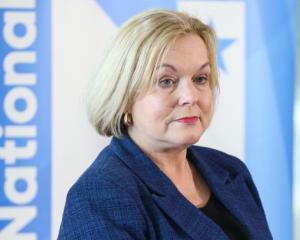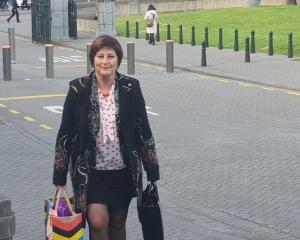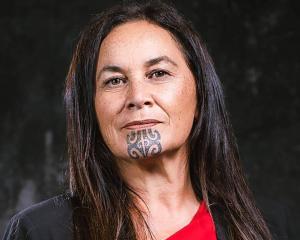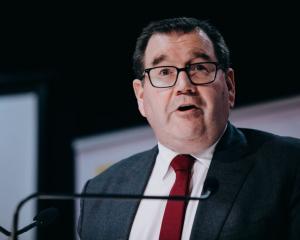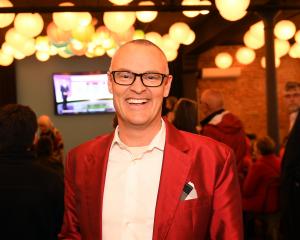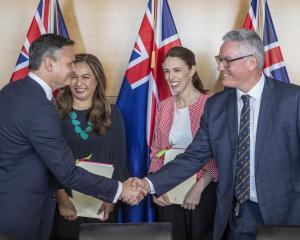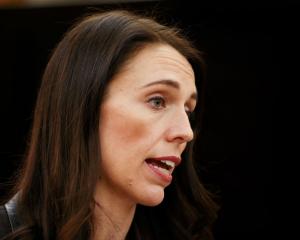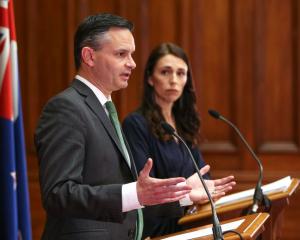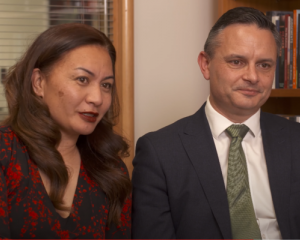
Winston Peters and his New Zealand First party have once again decided the next Government - writing another chapter in Peters' remarkable political career.
Today he installed Jacinda Ardern's Labour Party in the new government.
This election is the third time in 21 years that NZ First has held the balance of power and it has been Peters' show in the three weeks since election day.
International media attempting to explain the outcome told readers the call on the next Government rested with a cantankerous, populist and Trump-esque politician.
Peters' double-breasted pinstriped suits, combative approach to media and ability to keep opponents guessing and second-guessing are so familiar to Kiwis as to seem a permanent part of politics here.
Now 72, he first ran for Parliament as a 30-year-old, standing for National in Northern Maori - an ironic start given he now wants to hold a referendum on abolishing the Maori electorates.
Peters made it into Parliament as a National MP three years later after a court order to overturn the election night result in the seat of Hunua - the first controversy in a tumultuous career.
That has included his split from National in 1993 and the formation of NZ First, being sacked from Cabinet by Jenny Shipley, serving as Foreign Minister under Helen Clark, lean years of support after losing Tauranga in 2008, and upsetting National to capture Northland in a 2015 byelection.
In the days following this year's election Peters holed up at his property on family land at Whananaki in Northland (Peters also shares a home in Auckland's St Marys Bay with his partner Jan Trotman).
Peters and his 10 siblings were raised in Northland. His father Len was Maori, and his mother Joan had Scottish ancestry.
He attended school in Whangarei and Dargaville, and trained to be a teacher before studying law at the University of Auckland, later working as a lawyer.
His fondness for fishing, horse racing, rugby and reading political biographies (particularly on Winston Churchill) are well known. As is his appreciation of whiskey. Peters buried the hatchet with Jim Bolger over a whiskey session during 1996 negotiations, and in her first press conference as Labour leader, Jacinda Ardern said her message to Peters would be, "I like single malts".
Peters gave up cigarettes ahead of this campaign and has talked down his drinking, telling an interviewer this year that it was overplayed by media who "get drunk on a wine biscuit".
Under Andrew Little, Labour was in such dire straits there was speculation Peters could try for a post-election agreement that would see him serve as Prime Minister - the kingmaker turned king.
Then came "Jacinda-mania". Ardern's ascension as leader captured media attention and created a contest that pulled voters back to the two main parties.
NZ First dropped in the polls, hitting 5 per cent in one held shortly before the election - just above the threshold needed to make it back to Parliament without an electorate seat.
In the end, Peters lost Northland to National's Matt King and NZ First's vote came in at just over 7 per cent. Its share of the vote dropped in all but three of the 15 electorates the party got the best results in.
However, the party still emerged with the balance of power and nine MPs.
National and Labour began looking through NZ First policy to see potential overlaps and areas of opposition.
The populist NZ First is defined by its opposition to foreign ownership and a free market approach to the economy, desire to slash immigration levels, and policies to help its largely elderly constituency, such as the Super Gold card scheme.
But it is best-known for its leader. Speculation about when Peters might leave politics will mount as the next Parliamentary term progresses.
He is described on the party's website as "the last of the great characters in an increasingly bland political environment".
Bill English labelled him a maverick in a media interview shortly after the election. Peters responded by calling that description "not very smart", and fear of such a reaction is why both English and Ardern have hardly made comment to media during negotiations.
Peters had no such worries. After each negotiating session he would return to his offices and the waiting media pack. Some questions would be answered, others criticised along with the journalist asking.
After a minute or two Peters would declare, "Thank you very much", before turning and taking the scrum of cameras and microphones to the lifts. Once inside, the door was held to give Peters the last word.
Parliament's longest-serving MP was back on centre stage.

